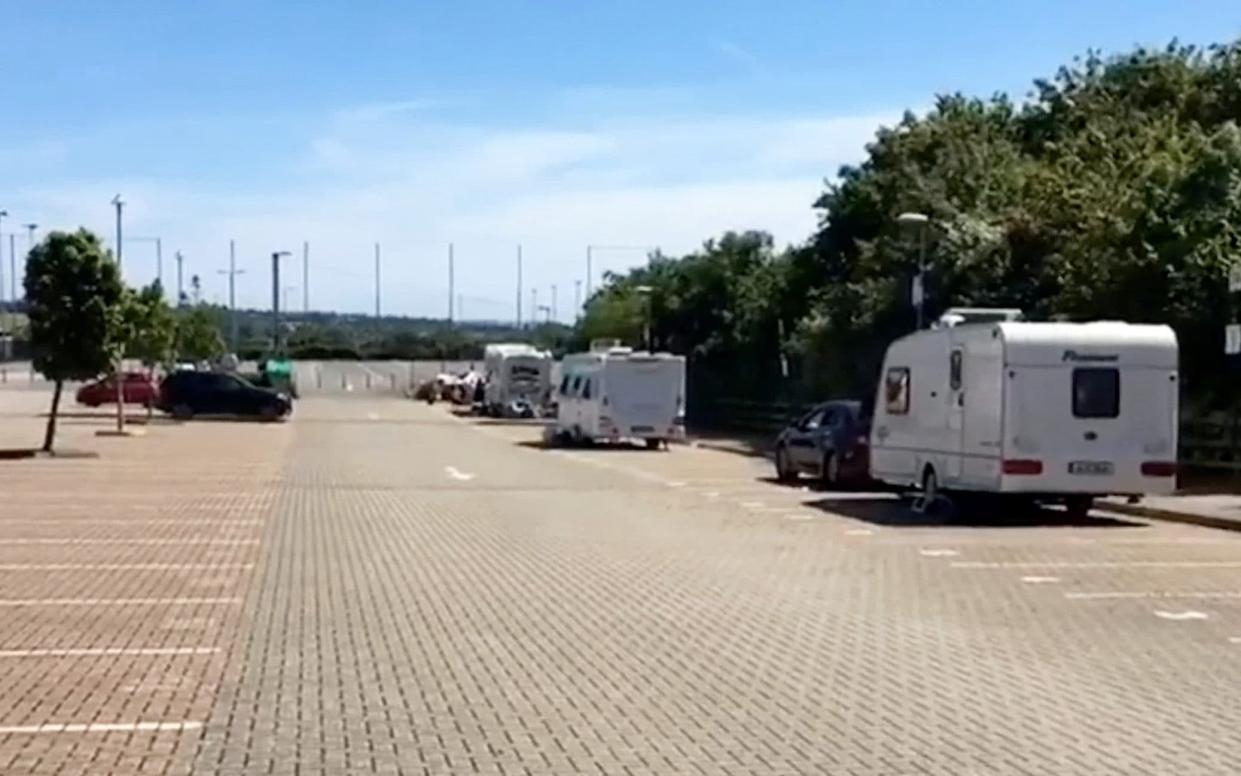Travellers will be barred from returning to illegal sites for a year

Travellers will be barred from returning to illegal sites for a year under a Government crackdown to be announced in the New Year.
Police will get powers to prosecute travellers if they return to a specific site within 12 months, a quadrupling of the time limit from the current three months. Those who breach the law will face up to three months in jail and fines of up to £2,000.
It is part of an overhaul of the legislation to prevent illegal encampments which ministers say cause communities “significant distress.”
The reforms, part of the Police Powers and Protection Bill due in the New Year, will give councils powers to direct travellers to authorised sites in neighbouring council districts. Currently, police are banned from moving travellers to sites outside the council area where they have camped.
Police will also be able to act sooner as the threshold for intervention will be dropped from six illegally parked caravans to two.
It follows widespread complaints from MPs and residents about trespassing, noise and anti-social behaviour. It is estimated there are some 23,000 traveller caravans in England, of which 14 per cent are parked on unauthorised sites.
Priti Patel, the Home Secretary, is expected to make good a manifesto commitment to give police new powers “to arrest and seize the property and vehicles of trespassers who set up unauthorised encampments, in order to protect our communities.”
This will be done by making it a criminal offence for travellers to intentionally trespass on private land when setting up an encampment.
The change was campaigned for by Ms Patel when she was a backbench MP alongside Alok Sharma, now the Business Secretary, and John Whittingdale, a culture minister.
Mr Sharma said: “My view is clear – the law needs strengthening and trespass needs to be made a criminal offence.
“This is the case in the Republic of Ireland and we need this change here. It will deter illegal encampments as the individuals concerned will understand they will face criminal law sanctions, rather than civil ones, right from the start.”
The civil sanctions for fly tipping, which leaves farmers having to pay tens of thousands of pounds to clear up dumped rubbish, and squatting in commercial premises are expected to remain unaffected by the changes.
The proposal to criminalise trespass was first mooted by the Tories in the party’s 2010 general election manifesto.
“The vast majority of travellers are law-abiding citizens – but illegal sites often give an unfair, negative image of their community and cause distress and misery to those who live nearby,” said a Government source.
“There is a widespread perception that the law does not apply to travellers and that is deeply troubling.”
The moves are being opposed by traveller organisations who claim they are more about electioneering than tackling any perceived problem.
The Friends, Families and Travellers (FFT) charity said that even the police did not believe the new criminal powers were necessary.
Responses to the Government’s consultation obtained by the charity under freedom of information (FOI) legislation, showed that 75 per cent of police responses indicated their current powers were sufficient and/or proportionate.
Additionally, 84 per cent did not support the criminalisation of unauthorised encampments, and 65 per cent said lack of site provision was the real problem.
Abbie Kirkby, advice and policy manager at FFT, said the proposed laws would make the lives of Gypsies and Travellers a misery.
She said: “The evidence we have collected shows that the Home Office are deliberately ignoring police views on unauthorised encampments. The timing of the consultation made it clear that the Government’s motive was to use Gypsies and Travellers to gather votes at election time.”

